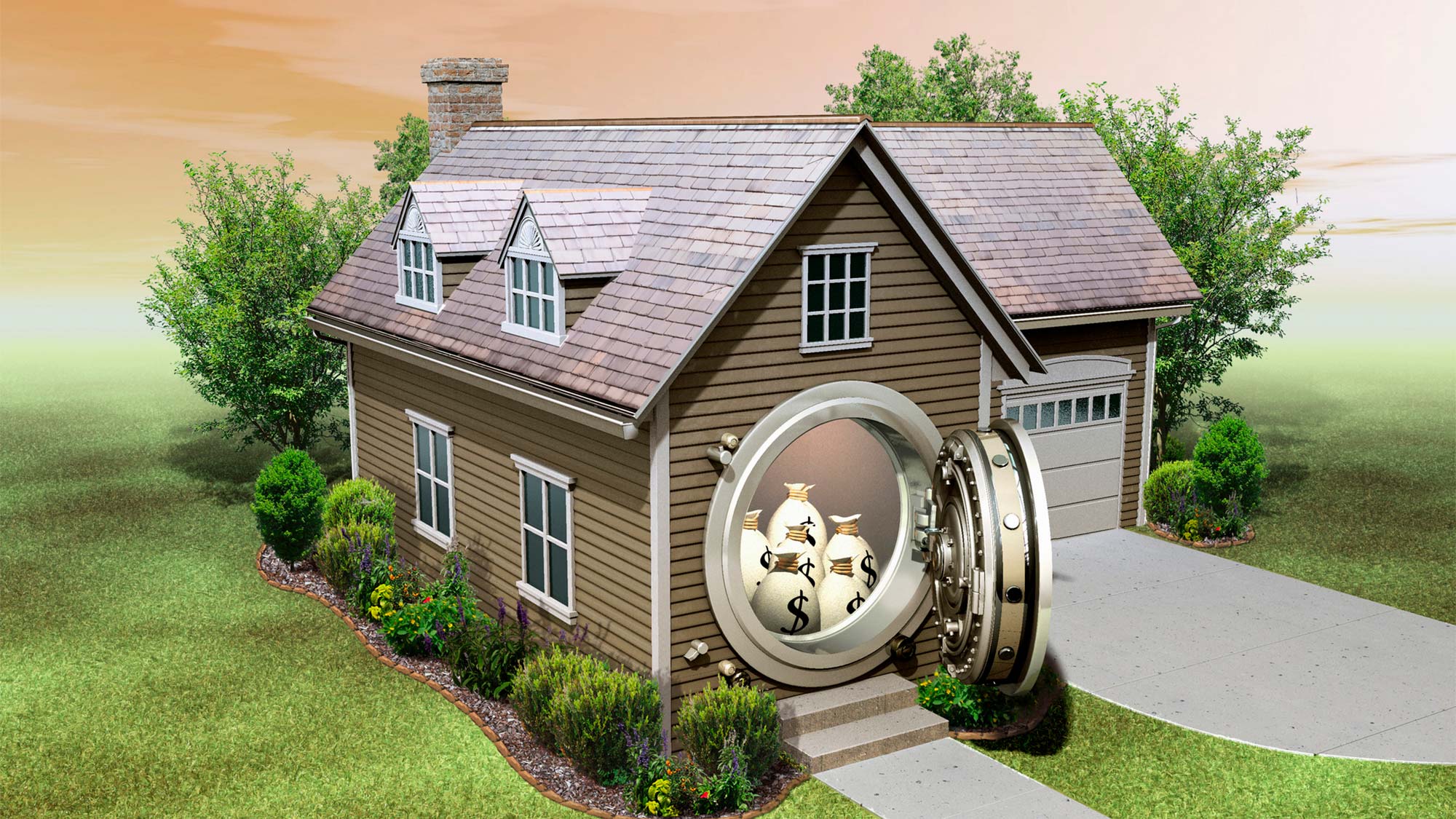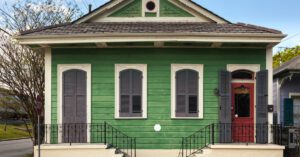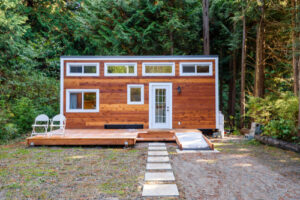There’s no way around it: Buying a house is expensive.
In fact, the average cost for a home in Guelph is now over $770,000. For a single-family home, it’s even higher.
As housing becomes increasingly less affordable, creative home buyers – a typical real estate investor and first time buyers, especially – have adapted and are finding new ways to own a home without breaking the bank.
This is where “House Hacking” comes into play. It is a real estate trend that’s growing. Sometimes it’s out of necessity due to high housing expenses. However, other times it’s a great way to turn a home into an investment property to offset high housing costs.
Many people find themselves living in cities where they are simply priced out of home buying. With house hacking, you are essentially creating housing through a newly created multi-family property that also provides passive income.
What Is House Hacking?
Simply put, House Hacking is a strategy that involves becoming a landlord and renting out portions of your primary residence to generate income. This income is used to offset the cost of your mortgage and other expenses associated with owning a home.
However, we’re not talking about renting a room in your house or sharing your existing home with tenants. We’re talking about creating a secondary home, here- think guest houses attached to your single family home. Others would refer to it as multifamily rental units property.
When done correctly, it allows people to live in expensive areas completely for free, or even generate passive income through home ownership.
However, just like everything else in life, house hacking does come with a cost. In order to save on the financial side, homeowners must be willing to take on a little more work and sometimes sacrifice some comforts in the process.
What type of property should I house hack?
You should talk to your Guelph realtor or Guelph real estate agents about this. There are a wide variety of property types you can use for house hacking. The most common is the duplex, where a house hacker rents one part and lives in the other. This turns the property in what would be referred to as a “multifamily property”. But there are many other options that would allow you to earn income:
- Triplexes
- Spare bedrooms of a single family house (rent to roommates or to Airbnb guests)
- Accessory Dwelling Units of a single family house (ex: basement apartment, garage apartment, or small tiny homes)
- Mobile home or RV rentals on a large lot of a single family house
- Rent parking spaces in your driveway or garage parking space
Pros & Cons of House Hacking:
Pros
Cash Flow
This is one of the main benefits of house hacking rental properties. The extra income accumulated each month after all expenses have been paid. You can use your cash flow either to pay down your mortgage or to invest in additional properties. Cashflow provides you with extra money
Financing
House hacking can also help when is comes to obtaining the best mortgage rate for a multi-unit building. This is because the property is seen as owner-occupied since you are living in one of the units.
If you are going to start renting a portion of your home, you should get a home valuation done at the time of rental. This is for tax purposes so that CRA knows when you’ve started to collect rent and the value of the home at the time. Therefore whenever you sell, you have a starting point value and an end point value.
“Landlording”
With house hacking, many first time home buyers and real estate investors can get valuable landlording experience with a relatively low amount of risk.
This includes advertising your vacancy, tenant screening, tenant management, understanding rental agreements and contracts, dealing with unanticipated housing issues and repairs, negotiating with contractors, and bookkeeping.
Cons
You have to be a landlord
You don’t really have much of a choice here. Whether you get roommates or rent out an entire unit, you have to act like a landlord. Not only do you have to act like a landlord but you need to be a legal landlord. Make sure you do some reading up on your local laws and make sure your lease agreement follows all laws. The Landlord and Tenant Board is a great resource for lease agreements and general information on landlord and tenant rights.
When you’re choosing a tenant, you need to think of a variety of factors:
-what is the market rent for your area
- are you going to include utilities in your rent or are those additional?
- what are your monthly expenses for the whole home? This includes your monthly mortgage payment, your property taxes, maintenance etc
- ensure you do due diligence on selecting a tenant. This includes employment verification, a background check, references and credit score
You live near or with your tenants
A typical landlord will not always live in the same area as their rental property. This creates some distance between them and their tenants. However, when house hacking, your tenants are simply a wall away. You may run into issues with a lack of privacy or never truly feeling “at home.”
You will likely have to give up part of your home
When house hacking, you will likely be required to give up a portion of your house. Whether you are renting out an extra room or have converted your basement into an apartment, these areas of your house will no longer be accessible to you.
It’s likely going to be a (more expensive) detached home
House hacking in a condo or townhouse where you share common walls with strangers isn’t really viable. In some cases, it’s not even permitted by a condo corporation or municipal by-law. Therefore, the best choice is a detached home, which, is also the most expensive type of home to buy.
Always check with your mortgage lender before venturing down the house hack route. Especially if you plan to do it right away, as conventional loans may not apply. You’re best to purchase the property as is, and then request a loan such as a HELOC. Call us for more info on this.
Starting Point for New Real Estate Investors
Since buying a house is for your primary residence, all of the benefits of owner occupancy will be at your fingertips. House hacking is a great real estate investing strategy if you’re looking to take action immediately. Not only will you have a great pulse on your property, but you’ll also get a feel for everything it takes to expand your real estate portfolio down the line.
After all, you won’t be able to occupy every real estate investment as a primary residence and get to learn through taking action.
Bonus points if you can get a house hack opportunity in an up and coming area. Not only will you gain on the house hack itself, but you benefit from neighbourhood gentrification. If you have a great real estate agent, they’ll be able to advise on these local nuances before they happen.
How much does a home hack cost?
There is no textbook answer here, because there are limitless ways to do it. However, here is our recommendation to maximize your returns:
- create a separate apartment that has as many extra bedrooms as you can get within your local municipality guidelines
- utilize the benefits of the Ontario More Homes Built Faster Act and build an ARDU (additional residential dwelling unit) or tiny homes to utilize underused land
- review property values in your neighbourhood and ensure that your purchase price plus renovations don’t price you out of the market
- Determine what the cost of the renovation will be- get quotes from 3 contractors
- Determine your monthly payment and how much money you need to charge in monthly rent to offset the entire mortgage cost
- Look for other creative ways to generate income: rent extra space in the garage, a parking space or any other income generating space that is part of the property
- Do you need to hire a property manager if you’re living out of town? Factor in that cost
Other real estate investment strategy for house hacking
Offer Rooms In Your Home Available For Short-Term Rentals
Not sure you like the idea of committing to a long-term rental of any part of your current home? Then you can dip your toes in the water of real estate investing by offering up a spare room on a short-term rental platform like Airbnb or Vrbo.
Women property owners interested in renting only to other women for safety reasons might be interested in Golightly, an invitation-only site that vets its gender-exclusive membership.
One thing to consider is that you’ve cleared any short-term rental laws and spoken to your mortgage broker. Lastly, ensure that you’re thoroughly familiar with the condo board rules before buying for short term rental. Many Condo Corporations prohibit both short term rentals and require minimum rental periods.
If you’re considering a short term rental, take a look at other rentals in Guelph to get an idea of pricing of both short, as well as long term options.
Is rental income on my own home taxable?
Yes. Like a rental property that you rent out and don’t live in, house hackers must report any rental real estate income on your annual taxes.
However, since you live in the majority of the house as your primary residence, you won’t have to pay capital gains on the sale as long as you live there for more than one year.
Speak to your accountant about specific legal write offs you can make to offset income generated through house hacking.
Get in touch with Beth and Ryan, contact us to start your house hacking journey today!



